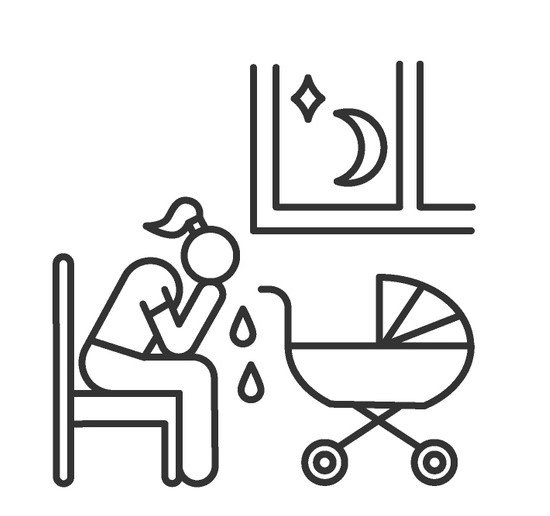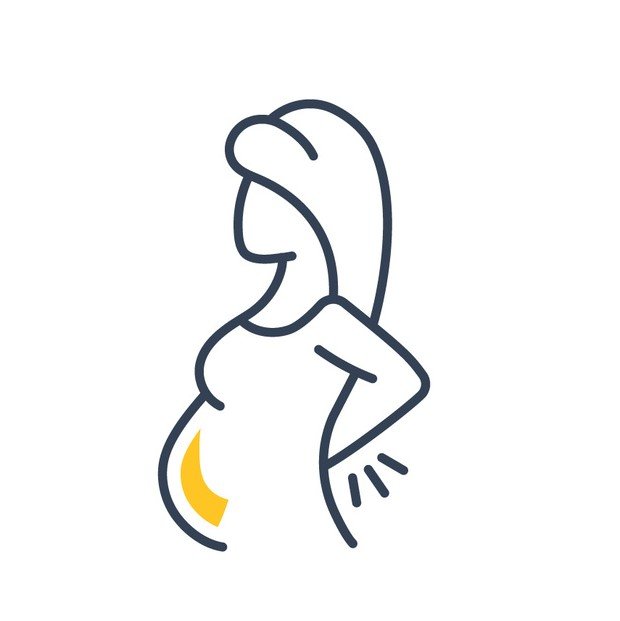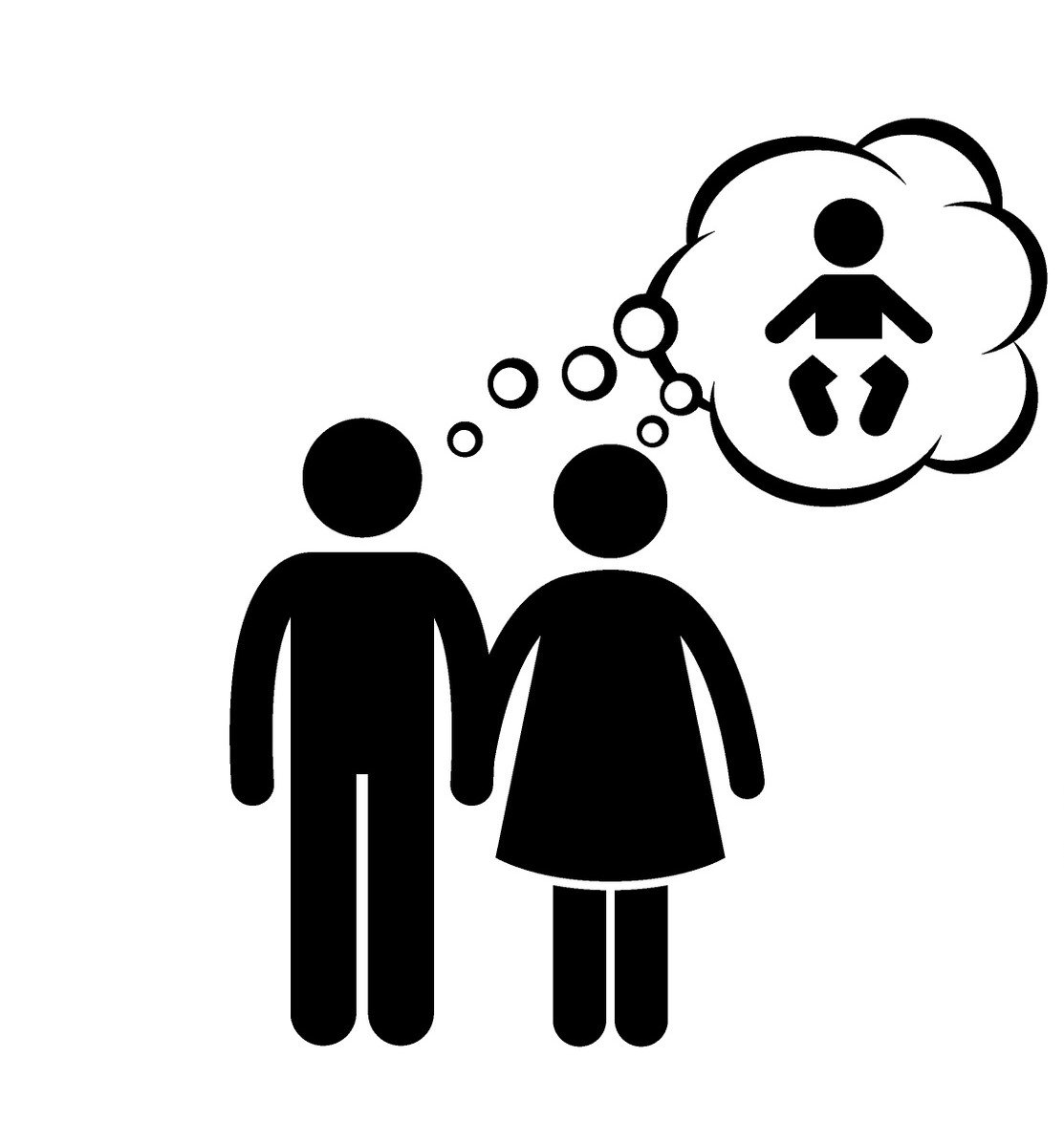
Anything that’s human is mentionable, and anything that is mentionable can be more manageable. When we can talk about our feelings, they become less overwhelming, less upsetting, and less scary.
- Fred Rogers
Areas of Practice
Fertility
Growing up, most of us were taught how common an unwanted pregnancy is, which led many of us to assume that getting pregnant (and staying pregnant) would be a simple straight-forward process. For 1 out of 6 couples in Canada, this is not the case. Trying to conceive and navigating fertility struggles can be incredibly isolating. As an individual who has personally dealt with infertility, I understand the anxiety, sadness, helplessness, grief, envy, shame, perfectionism, and anger that tracking cycles, managing the two week wait, seeing others’ pregnancy announcements, and advocating for yourself with health professionals can trigger. I use my personal and professional experience to support my clients struggling to conceive through deep empathy and understanding, helping them to process the complicated and conflicting feelings that come with struggling to conceive, as well as to develop coping strategies to manage this world of unknowns.
Mental Health Challenges During and After Pregnancy
We are inundated with images of the pregnancy glow and the magic of pregnancy, the amazing newborn snuggles, and told to enjoy every minute of it. Although meant to be helpful, this rhetoric can put an enormous pressure on parents to be and new parents. This stress combined with the hormone shifts in pregnancy and post birth can lead to pre or postpartum feelings of immense anxiety, depression, suicidal thoughts, rage and even psychosis. Reports have shown that as many as 1 in 5 new parents experience symptoms of postpartum depression (PPD), postpartum anxiety (PPA), or postpartum rage. The line between being a new parent is actually extremely hard and PPD/PPA is very blurry. As such, many new parents often suffer in silence. This only serves to exacerbate the problem.
PPD/PPA may include intrusive thoughts, irritability, feeling detached from your baby, difficulty sleeping, suicidal thoughts, and extreme feelings of sadness and anxiety. These symptoms last for longer than two weeks and can be debilitating. Postpartum mental health struggles do not discriminate. They can happen to the birthing parent or the non birthing parent. If you are experiencing any of these feelings, it’s important to reach out for support. Fortunately, pre and postpartum mental health struggles are very treatable. The first step is recognizing that you are not a bad parent but are struggling in the same way that many new parents do. Having a safe space to say the scariest and darkest thoughts out loud (I promise I have heard them all), connecting with others who have been through postpartum struggles, and finding ways to care for yourself as a new parent are so important to move through this extremely difficult phase.
Fertility Treatment
While most people know someone who has utilized fertility treatment, few of us expect our paths to parenthood to include doctors, nurses, embryologists and so many injections. When entering the world of fertility treatment, you are not only managing the same feelings of struggling to conceive as you were previously, but also the overwhelm of learning all sorts of new medical terminology, making enormous decisions about which treatment path to go on, and often needing to advocate for yourself regarding testing and follow-up care with your medical team. Studies have shown that individuals and couples undergoing fertility treatment can experience the same levels of stress as someone going through cancer treatment. Fertility treatment can be all consuming and impact a person’s financial health, physical health, romantic relationship, work attendance, as well as family and social relationships. As a parent who required fertility treatment to conceive, I understand what it’s like to navigate the world of fertility clinics. I use my professional experience to provide emotional support and coping strategies to my clients undergoing fertility treatment as well as my personal experience as a fertility clinic patient to help you understand the terminology and support you with advocating for yourself with your healthcare team.
Birth Plans
Many pregnant people have a clear idea of the type of birth they want for themselves and their baby. Especially for those who struggled to conceive and felt helpless for most of that process, there can be a desire to have as much control as possible over the birth. In some cases, a birth plan is written and all goes according to the plan. However, in many cases, the baby and the birthing parent’s body have other plans. Birth trauma can occur for parents when childbirth happens much differently than they hoped. I work with pregnant individuals and help them explore their ideas and wishes surrounding childbirth with the goal of finding a balance between advocating for themselves during childbirth while also being open and flexible to the many aspects of childbirth we don’t have control over. I also support new parents who have experienced birth trauma grieve the loss of the birth they didn’t have and process the emotions surrounding the birth they did.
Childless Not By Choice
Many in the fertility community have a mantra for themselves and others that if they keep trying, they WILL have a baby in the end. This form of toxic positivity can be incredibly harmful to the individuals and couples who don’t get the happy ending they hoped for. It can leave them feeling like they failed when in reality, there is a strong element of luck when undergoing fertility treatment. Individuals and couples who are childless not by choice are faced with unique challenges. They may feel ostracized by the infertility community as well as the childless by choice community and are unsure where, if anywhere, they belong. They can be inundated by never ending questions from others about their family planning and feel at a loss on what to answer. When a dream does not come to fruition, it can feel similarly to the death of a loved one and requires a space to grieve this immense loss. If you are childless not by choice, I am here to support you through these unique challenges, help you feel seen and heard and to help you envision a new path for your life. By working through the grief, many individuals who are childless not by choice create new dreams and goals for themselves and their relationships. Many report that although their lives look different than they originally imagined, they still feel happy and fulfilled and can even see some of the perks of not having children.
Support Group Sessions
These are single session support groups held virtually for 1.5 hours. They are offered monthly and have a maximum of 12 participants in each group. These sessions can be extremely helpful in reducing feelings of isolation (participants sometimes even create an ongoing group chat following the session to continue the connection). They also can be a way to connect with me and determine whether you would like to receive individual counselling through my practice. I offer two types of support groups each held once a month (dependent on registration).
Fertility Support Group - this group was created for self-identified women who are struggling to conceive their first child. Tracking cycles, putting life on hold “in case” you’re pregnant, and the hypersensitivity to bodily sensations during the two week wait can certainly take a toll. Likewise, undergoing fertility treatment can feel extremely overwhelming and knowing where to start and what to ask your health care team can feel paralyzing. The fact is infertility makes most of us feel very alone. It can feel like everyone around you is getting pregnant (and staying pregnant) and you’re being left behind. If you have been trying to conceive for over six months and are looking for support and to meet other women in the same situation, this group is for you. The goals of this group are for you to connect with one another, feel less alone, and also learn tools to cope with the difficult feelings that infertility triggers. To learn more about the dates of our next Fertility Support Group, please have a look at the Luna Health Clinic website. To register, please use the following link: Click to Book Fertility Support Group.
Pregnancy and Postpartum Support Group - this group is pregnant people and new parents who are struggling with anxiety, depression, or anger. If you are feeling unbearably overwhelmed, hopeless about the future, disconnected from your baby, guilt, emptiness, intense anger and frustration, or insomnia, this group is for you. When you’re a sleep-deprived new parent and then these postpartum symptoms are added to your plate, it can feel impossible to know how to survive this. This group is meant to be a light for you in the darkness. You may feel alone right now but I can assure you that you’re not the only one feeling this way. Connecting with other new parents and realizing that you’re not the only one feeling this way can be impactful in helping us to carry on. In this group, we will also discuss tips and tools to manage during this excruciating time. To learn more about this group and upcoming sessions, please click here.
“Some of the most comforting words in the universe are ‘me too.’ That moment when you find out that your struggle is also someone else’s struggle, that you’re not alone, and that others have been down the same road.”
— AUTHOR UNKNOWN







